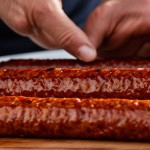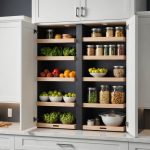Top Seed Sprouters Perfect for UK Kitchens: Find Your Ideal Match!
If you’re enthusiastic about growing your own sprouts and microgreens at home, you’re in the right place. Seed sprouters have become increasingly popular, and for good reason – they offer a convenient, healthy, and delicious way to add fresh greens to your meals. Here’s a comprehensive guide to help you find the perfect seed sprouter for your UK kitchen.
Why Use a Seed Sprouter?
Before we dive into the top seed sprouters, let’s explore why using one is a great idea.
Additional reading : Top Refrigerator Choices Perfectly Suited for Small UK Kitchens
- Health Benefits: Sprouts and microgreens are packed with nutrients, often more so than their mature counterparts. They are rich in vitamins, minerals, and antioxidants, making them a great addition to salads, sandwiches, and other dishes.
- Convenience: Seed sprouters allow you to grow your sprouts at home, eliminating the need to rely on store-bought options. This means you can have fresh, healthy greens year-round.
- Cost-Effective: Growing your own sprouts can be more economical than buying them from the store. You can purchase seeds in bulk and use them as needed.
- Variety: With a seed sprouter, you can experiment with a wide range of seeds, from broccoli and alfalfa to mung beans and sunflower seeds.
Key Features to Look For
When choosing a seed sprouter, there are several key features to consider:
Material
- Terracotta: Known for its natural, food-grade properties, terracotta sprouters like the GEO Terradisiena 4-Tier Terracotta Sprouter maintain a moist environment and require less water. However, they can be more challenging to clean.
- Stainless Steel: Stainless steel sprouters are durable, easy to clean, and resistant to rust. They are a great option for those who value ease of maintenance.
- Plastic: Plastic sprouters are often more affordable and lightweight but may not be as durable as other materials.
Design
- Stacking System: A good sprouter should have a versatile stacking system that allows you to control the amount of light and water your sprouts receive. The GEO Terradisiena, for example, offers night and day sprouting options.
- Tray Size and Number: Consider how many trays you need based on the amount of sprouts you want to grow. More trays can be beneficial but also increase the overall size of the sprouter.
Ease of Use
- Cleaning: Look for sprouters with easy-to-clean designs. Some sprouters, like those with fine mesh or larger holes, are simpler to maintain than others with tiny holes.
- Instructions: Follow the instructions provided with your sprouter to ensure you’re using it correctly. This includes soaking the seeds, rinsing them, and placing them in the trays.
Top Seed Sprouters for UK Kitchens
Here are some top seed sprouters that are highly recommended for UK kitchens:
Also to see : Top Refrigerator Choices Perfectly Suited for Small UK Kitchens
1. GEO Terradisiena 4-Tier Terracotta Sprouter
- Material: Terracotta
- Special Features: Innovative stacking system, night & day sprouting options
- Pros: Maintains a moist environment, requires less water, beautiful design
- Cons: Can be challenging to clean, some users report chips and breaks
2. SproutStacker 2 Level Automatic Sprouter Machine by Bright Kitchen
- Material: Stainless Steel
- Special Features: Automated, heated, 2-level design
- Pros: Easy to use, automated process, great for busy people
- Cons: More expensive than manual sprouters, requires electricity
3. GAIA Sprouter
- Material: Stainless Steel
- Special Features: Larger holes for easy cleaning, versatile design
- Pros: Easy to clean, durable, great for various types of seeds
- Cons: May not be as aesthetically pleasing as terracotta options
Detailed Comparison Table
Here is a detailed comparison table to help you make an informed decision:
| Sprouter | Material | Special Features | Pros | Cons |
|---|---|---|---|---|
| GEO Terradisiena | Terracotta | Innovative stacking system, night & day sprouting options | Maintains moist environment, requires less water, beautiful design | Challenging to clean, some users report chips and breaks |
| SproutStacker by Bright Kitchen | Stainless Steel | Automated, heated, 2-level design | Easy to use, automated process, great for busy people | More expensive, requires electricity |
| GAIA Sprouter | Stainless Steel | Larger holes for easy cleaning, versatile design | Easy to clean, durable, great for various types of seeds | May not be as aesthetically pleasing |
| Generic Plastic Sprouter | Plastic | Simple design, affordable | Affordable, lightweight | May not be as durable, less resistant to rust |
Practical Insights and Actionable Advice
Choosing the Right Seeds
When starting out, it’s best to use seeds specifically designed for sprouting. Mung beans, broccoli, and alfalfa seeds are popular choices because they are easy to grow and nutritious.
Following Instructions
Always follow the instructions provided with your sprouter. Here’s a general outline:
- Soak the seeds according to the package instructions.
- Rinse the soaked seeds under running water.
- Distribute the seeds evenly in the trays.
- Place the germination tower in a warm place without direct sunlight.
- Water or spray several times a day as instructed.
Tips for Easy Sprouting
- Use Fine Mesh: If you’re using a sprouter with fine mesh, it will be easier to rinse and clean the seeds.
- Keep it Clean: Regularly clean your sprouter to prevent mold and bacterial growth. Use a soft brush and mild soap.
- Monitor Water: Ensure your sprouts receive the right amount of water. Overwatering can lead to mold, while underwatering can cause the seeds to dry out.
Customer Reviews and Feedback
Customer reviews can provide valuable insights into the performance and usability of a sprouter.
- “I love that it holds three kinds of different sprouts and it has a tray at the bottom. Very easy to use and clean,” says one user of the GEO Terradisiena.
- “Keeping it clean for me is stressful and a pain trying to clean 60 or more tiny holes per tray,” notes another user, highlighting the cleaning challenges of some terracotta sprouters.
Choosing the right seed sprouter for your UK kitchen can make a significant difference in your sprouting journey. Whether you opt for the natural benefits of terracotta, the ease of use of an automated stainless steel sprouter, or the practicality of a plastic option, there’s a sprouter out there that’s perfect for you.
Remember, the key to successful sprouting is in the details – from choosing the right seeds to following the instructions and keeping your sprouter clean. With the right tools and a bit of practice, you’ll be enjoying fresh, nutritious sprouts and microgreens in no time.
Final Tips
- Experiment with Different Seeds: Don’t be afraid to try various types of seeds to find your favorites.
- Add to Your Wish List: If you find a sprouter that fits your needs but is currently out of stock, add it to your wish list and wait for it to become available.
- Shop Around: Compare different sprouters and read reviews from multiple sources to make an informed decision.
By following these tips and choosing the right sprouter, you’ll be well on your way to growing delicious and healthy sprouts in the comfort of your own kitchen. Happy sprouting






